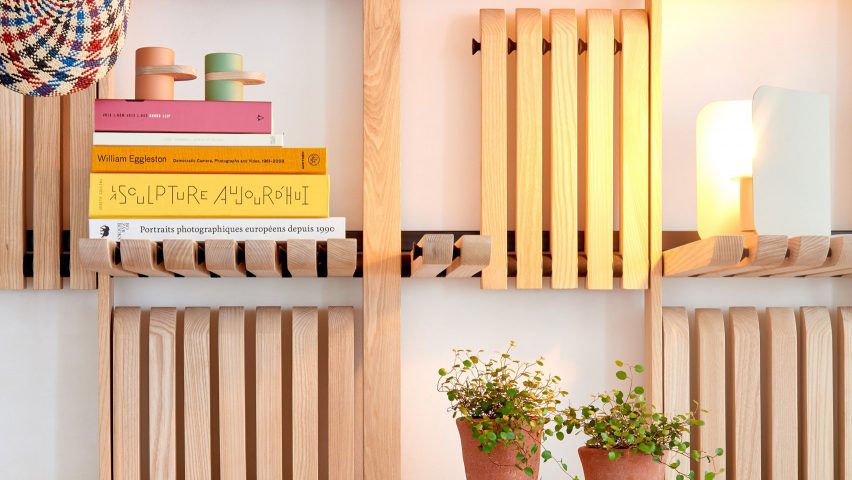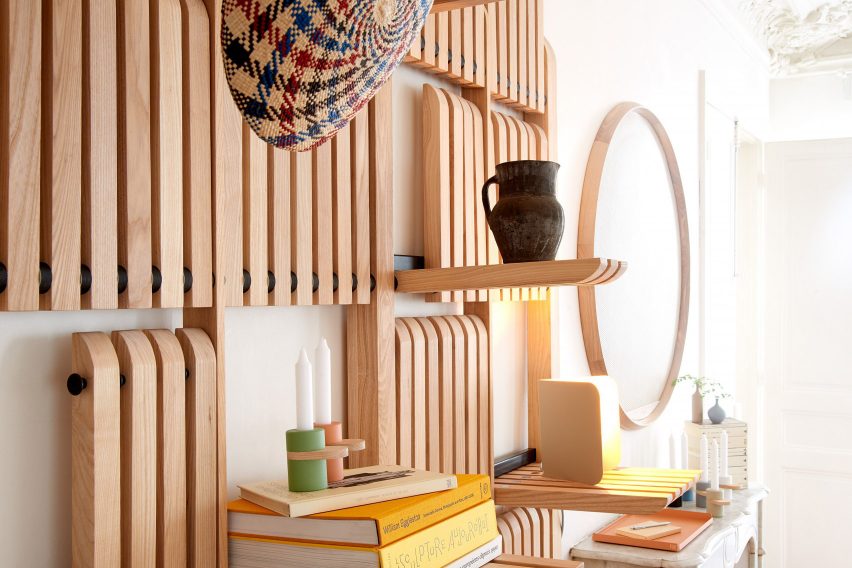
Gate furniture system comprises flip-down shelves that are easy to reconfigure
Architect Artem Zakharchenko-Halytskyi has designed a system of modular shelves made from wooden blades that can lie flat against the wall or pivot to provide a usable surface.
The Gate shelving system, which is longlisted in the furniture design category of Dezeen Awards 2019, comprises groups of solid ash blades that can be individually folded down to create a variety of functional surfaces.
"The specificity of this piece, in addition to its variable dimensions, lies in its dynamic instantaneous transformation," said the designer, whose studio Zakharchitects experiments with new combinations of materials and ethnic motifs when developing its products.

The shelves are formed of wooden bars slotted onto a metal rod that allows them to pivot up or down. Horizontal metal profiles complete the structural frame of the wall-mounted system.
Circular magnets recessed into the wooden sections snap onto the metal bars when the shelf units are flipped into the vertical position. This enables them to be locked out of the way when not in use, but also easily folded down by gently touching the ends.
The shelf units come in five widths and two depths to suit different spaces and applications. There is also the possibility to specify various add-ons, such as mirrors, storage boxes and surfaces to create a desk or dressing table.
As a consequence of its variable configuration, the system can be used as a wardrobe with space for hanging clothes. It can also provide a storage solution for the kitchen or living room, or create a versatile workspace solution.
Zakharchenko-Halytskyi wanted to create a product that is universally suitable for people with diverse abilities. The design's simplicity of use and flexibility is intended to make it easy for anyone to understand and adapt to their specific requirements.
Braille symbols can also be added to the ends of the wooden bars to assist the visually impaired. This focus on accessibility earned the product a special diploma from the United Nations Development Programme, which supports inclusive design as part of its remit.
Other examples of experimental modular shelving solutions include a flexible system created by Benjamin Hubert's studio Layer using a recycled textile material, and a storage system that can be assembled without tools by Copenhagen studio Moebe.